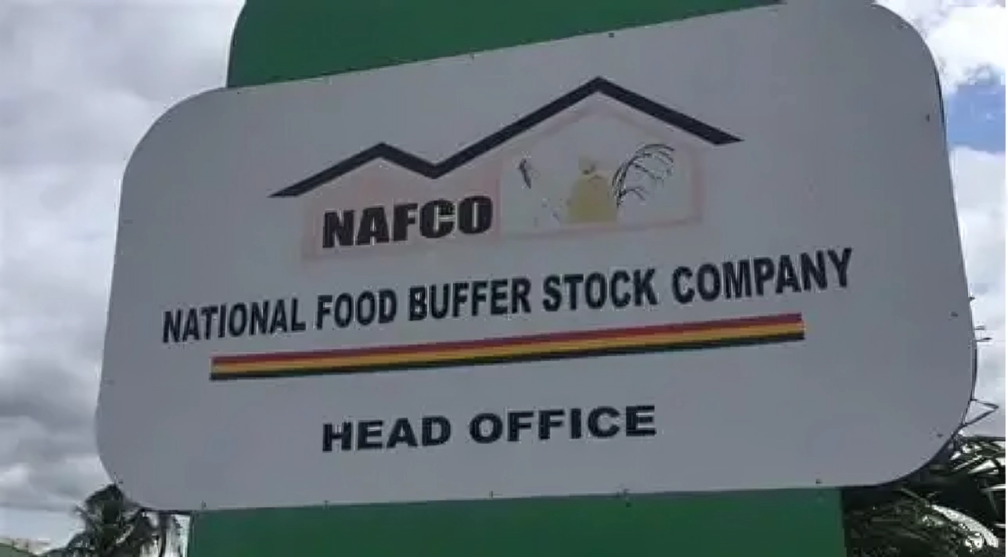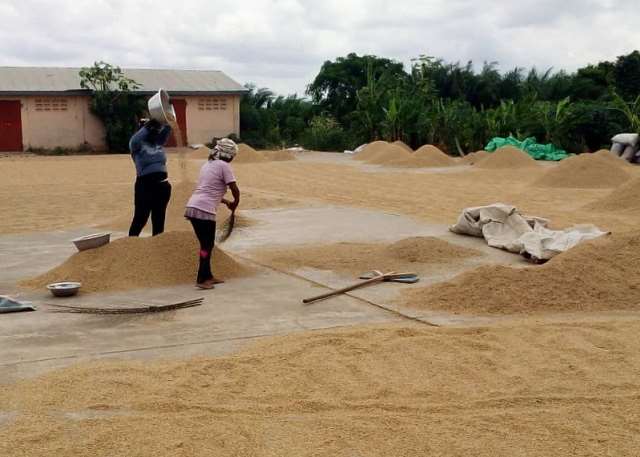Rice farmers in the Ketu North Municipality of the Volta region, have been thrown a lifeline, after the National Food Buffer Stock Company (NAFCO) announced plans to operationalize an abandoned warehouse in the area and purchase rice directly from the farmers.
This intervention, secured through the efforts of the Member of Parliament (MP) for Ketu North, Hon. Eric Edem Agbana, is expected to end years of post-harvest losses and marketing challenges that have plagued local producers.
Despite recording high yields, rice farmers in Ketu North, have for many years struggled to sell their produce at competitive prices. The absence of a structured market meant that large quantities of rice went unsold, often leading to discouragement among producers. The new partnership with NAFCO signals a turning point for agribusiness in the municipality and aligns with Ghana’s broader agenda of food self-sufficiency and security.
From Abandoned Facility to Beacon of Hope:
The warehouse, constructed under a previous government, had been left unused for years, becoming a symbol of wasted potential. Following an appeal by the MP, to the Chief Executive Officer of NAFCO, George Abredu-Otoo, the facility is now set to be revived and put to use under the NAFCO Food Reserves Programme.
Touring the facility in the company of the Ketu North Municipal Chief Executive (MCE), Rev. Martin Amenaki, to assess it’s readiness for operation, the NAFCO boss assured the farmers that the warehouse would soon be fully operational, serving as a reliable hub for rice collection, storage, and distribution.
“Our role as NAFCO is not only to stabilize prices but also to give our farmers confidence that their produce will always have a home in the national reserves. This warehouse will soon become fully operational to serve the people of this municipality.”
A Lifeline for Local Producers:
The intervention has been warmly welcomed by farmers who have long yearned for a sustainable and guaranteed market. Many have described NAFCO’s entry into the Ketu North rice industry as a “lifeline” that will prevent their hard work from going to waste.
Hon. Agbana expressed deep gratitude to NAFCO for responding swiftly to his request, emphasizing that the move would transform the livelihoods of local farmers.
“This intervention is a lifeline for our hardworking rice farmers. For years, they have struggled with post-harvest losses due to lack of a structured market. With NAFCO stepping in, we can now assure our farmers that their sweat will not go to waste,” he assured.
Local farmer associations also echoed this sentiment. Gabriel Atsu, a rice farmer from Awalavi, described the development as a “dream come true,” noting that with a guaranteed buyer like NAFCO, farmers would be encouraged to expand their farms, increase yields, and better support their families.
Boosting Food Security and Agribusiness:
Beyond providing relief for farmers, the initiative holds wider implications for Ghana’s food security. According to Abredu-Otoo, Ketu North has the potential to become a leading rice production hub in the country, contributing significantly to national reserves and reducing dependence on imports.
Stakeholders also believe that the operationalization of the warehouse will trigger a chain reaction of economic benefits. With reliable markets now assured, farmers can focus on scaling up production. This, in turn, will create opportunities in rice milling, packaging, transportation, and distribution, thereby generating jobs for the youth.
The MCE, Rev. Martin Amenaki, hailed the move as a practical step towards promoting agribusiness and rural development.
“Ketu North is known for rice cultivation. With this development, farmers can focus more on increasing yields without the fear of market losses. It also means more employment opportunities in areas such as milling, packaging, and transportation.”
Restoring Confidence in Local Farming:

For years, one of the greatest challenges facing smallholder farmers in Ketu North has been the lack of assurance that their efforts would pay off financially. Many were discouraged from cultivating large farms, fearing they would be unable to sell their produce. The NAFCO intervention changes this narrative by restoring confidence in farming as a sustainable livelihood.
The guaranteed market also sends a strong signal to potential investors in the agriculture sector. With stable pricing and structured distribution now in place, agribusiness in Ketu North is likely to attract more capital, both from the private sector and development partners.
The partnership between NAFCO and rice farmers in Ketu North is being viewed as a model for how targeted interventions can unlock the potential of Ghana’s agriculture sector. By bridging the gap between production and marketing, the initiative ensures that farmers not only produce more but also earn sustainable incomes from their labor.
As the warehouse becomes fully operational, stakeholders are optimistic that Ketu North will emerge as a major hub for rice production, playing a central role in Ghana’s quest for food self-sufficiency. Farmers, policymakers, and the local community all agree that this marks the beginning of a new chapter for agriculture in the municipality.
“This is not just about rice; it is about hope, livelihoods, and the future of our people. With NAFCO’s support, Ketu North will no longer be left behind in Ghana’s agricultural revolution.”
By Nelson Ayivor


